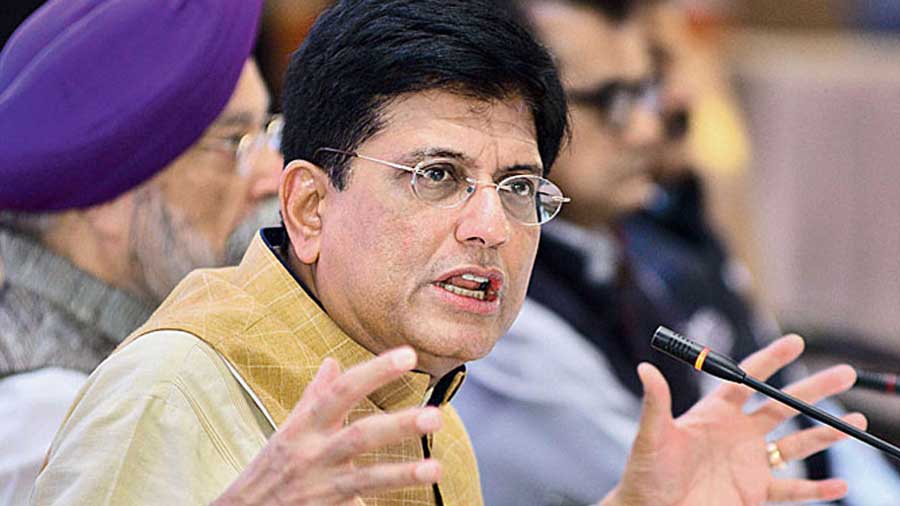The ban on exports of wheat will continue as India has to ensure adequate supplies of the foodgrain for its domestic market and keep the inflation at check, Union minister Piyush Goyal said on Thursday.
He said that the procurement of wheat has started and the numbers for the first week of buying are "very" satisfactory.
"I could believe that we will have a good harvest despite the unseasonal rains...We do believe that we will have to ensure adequate supplies for the Indian market and once the procurement period is over, we believe that it will be important that inflation is also contained in the country and therefore it is important that the wheat exports continue to remain banned," the commerce and industry and consumer affairs, food and public distribution minister told reporters here.
He is here on a two-day visit to meet leaders and businesses in order to enhance economic ties between India and Italy.
India, the world's second-largest wheat producer, banned wheat exports in May 2022 as part of measures to control rising domestic prices.
State-owned Food Corporation of India (FCI) Chairman and Managing Director Ashok K Meena has recently stated that estimated higher wheat production this year will ensure sufficient supplies for both government procurement and general consumption in the Indian market.
The government has projected a record wheat production of 112.18 million tonnes in the 2023-24 crop year (July-June), as per the second estimate of the agriculture ministry.
On April 1, FCI godowns would have a wheat stock of 84 lakh tonnes.
FCI is the government's nodal agency that undertakes the procurement and distribution of food grains for the PDS (public distribution system) and welfare schemes.
Further, the Centre has relaxed quality norms for wheat procurement in Punjab, Chandigarh, Haryana and Rajasthan to prevent distressed sale as well as protect the interest of farmers.
The recent untimely rainfall, hailstorm and high velocity wind have damaged the standing wheat crop, which was ready for harvest, in some parts of these states. These state governments had demanded the relaxation in procurement norms.
Currently, wheat procurement is underway in Madhya Pradesh, while it has been delayed in other states because of untimely rains. State-owned Food Corporation of India (FCI) along with state agencies undertake the procurement of wheat.
"After the field survey, we have relaxed the quality norms for procurement of wheat in Punjab, Chandigarh, Haryana and Rajasthan in order to reduce hardship of farmers and to avoid distressed sale of wheat," Subodh Kumar Singh, Additional Secretary in the Union Food Ministry, said on March 11.
The Centre has asked these state governments to deduct the imposed value cut from the minimum support price of Rs 2,125 per quintal while making a payment to the farmers.
The government has purchased 13.20 lakh tonnes of wheat till April 10 of the ongoing 2023-24 marketing year (April-March) mostly from Madhya Pradesh. About 1,000 tonnes of wheat has been procured in Punjab, while 88,000 tonnes in Haryana in the same period, as per the food ministry data.
Asked about the lower procurement in Punjab and Haryana, the official said, "the procurement was delayed due to the untimely rains. The arrivals were not huge and therefore the procurement has not been much. However, in the next few days, the procurement of wheat in these two states will pick up." The Centre aims to procure 34.2 million tonnes of wheat in the ongoing 2023-24 marketing year (April-March), higher than 19 million tonnes achieved in the previous year.
Last year, wheat procurement had declined due to a slight fall in production owing to heat wave and unseasonal rains. However, this year the production is estimated to reach a record of 112.2 million tonnes.
Except for the headline, this story has not been edited by The Telegraph Online staff and has been published from a syndicated feed.











